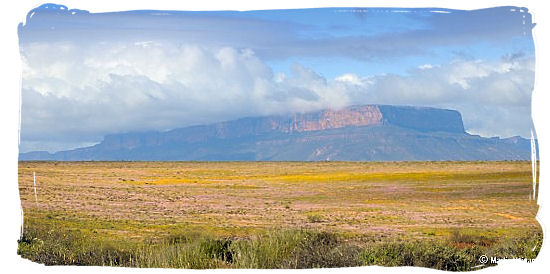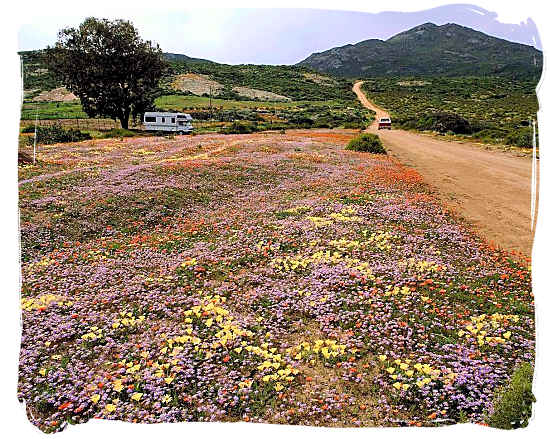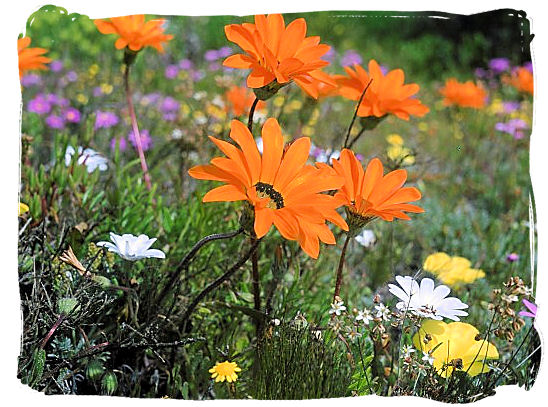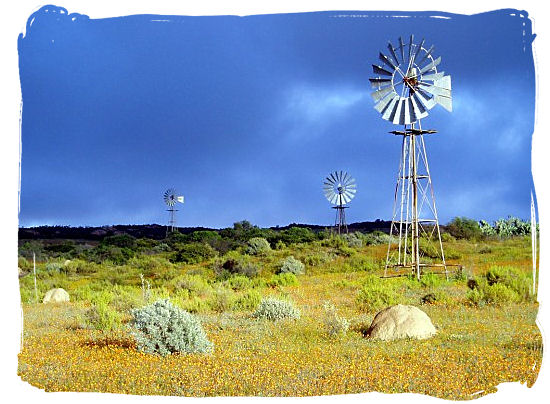You are here:
-
Home
›
-
National parks in South Africa
›
-
Namaqualand National Park
›
-
Namaqualand National Park climate
Namaqua National Park South Africa is known for
its unique semi-desert climate
Namaqua National Park belongs to the winter
season rainfall region of South Africa. Therefore the semi-desert Namaqualand Park normally
experiences hot and dry summer seasons, followed by cold winters accompanied by varied but mostly
sparse rainfall. The rainfall in the eastern part of the Park is higher than that in the
western part.
This unique National Park can be found some 495 km north of Cape Town off the N7 highway to
Namibia, and 67 km away from the town of Springbok in the north.
The nearest town is Kamieskroon, which is situated about 22 km from the Park's offices.

Fields upon fields of flowers in Namaqualand
Namaqua National Park South Africa, Namaqualand Flowers Spectacle
Photograph by Martin Heigan
The highest rainfall takes place over the period June, July and August. The average temperature range during
the winter season varies between 7 and 19 degrees Celsius, while the average temperature during the summer period
varies between 20 and 32 degrees Celsius.

Namaqualand landscape in the flower season
Namaqualand National Park South Africa, Namaqualand Flowers Spectacle
copyright © South African tourism
Climatic change has grown into a hot issue throughout the world, including South Africa where the phenomenon of
global warming also has become a reason for considerable for concern. The country’s wildlife especially is expected
to be affected by the increasingly warm and dry climatic conditions.

Close up of the famous Namaqualand daisies
Namaqualand National Park South Africa, Namaqualand Flowers Spectacle
copyright © South African tourism
A substantial new piece of territory totaling 63 000ha has been recently added to the Namaqua Park, increasing its
overall size to 144 000ha, which makes it the fifth largest national park in the country.

Windpumps in the Namaqualand landscape
Namaqualand National Park South Africa, Namaqualand Flowers Spectacle
As a result of the added extension from sea level to an elevation of nearly1700m, it can be expected that some of
the heat will be taken off its inhabitants. It will actually allow the wildlife to migrate to cooler areas of the
park, which in turn will increase the prospects for survival for both the animal and plant species.
Top of Page
-
Home
›
-
National parks in South Africa
›
-
Namaqualand National Park
›
-
Namaqualand National Park climate

